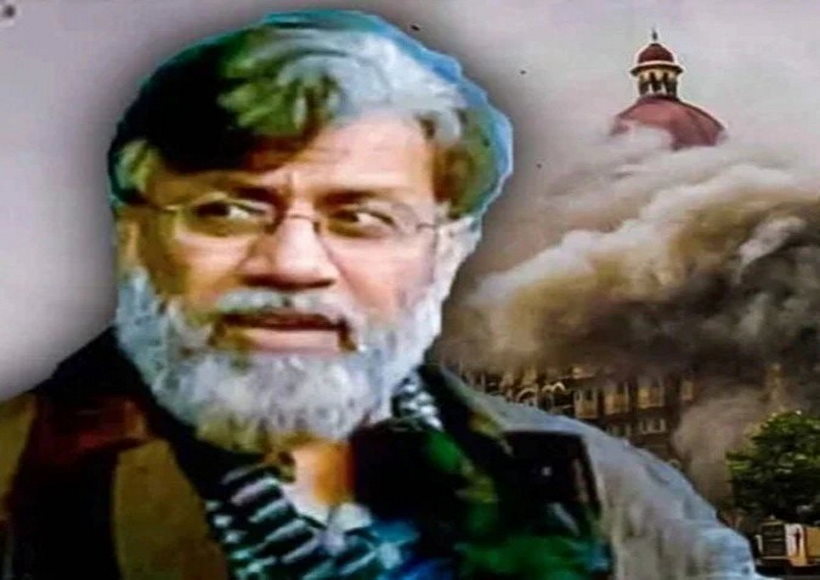Mumbai, January 2 (UITV)- After a major legal victory in the US, Tahawwur Rana, an accused in the 26/11 Mumbai terror attack, will be extradited to India. Under the India-US extradition treaty, the US court has ordered Tahawwur Rana to be sent to India in August 2024. After this order, the process of bringing Rana to India has now been expedited. This decision is an important success for the Indian investigating agencies and the government, as Rana is accused of playing a key role in the Mumbai attack.
Tahawwur Rana is accused of helping terrorist David Headley, who was the mastermind of the 26/11 Mumbai attack. Rana helped the mastermind of the attack, Headley, to conduct a recce of the targets before the attack in Mumbai. India had presented solid evidence in the US court, which clearly revealed Rana’s involvement. These evidences showed that Rana played an important role in planning and carrying out the Mumbai attack. Indian officials had presented strong evidence against Rana, refuting the unnecessary arguments in the court, which helped the US court to rule in favor of his extradition.
26/11 Mumbai attack accused Tahawwur Rana had filed a Habeas Corpus petition in the US court to stop his extradition process, which has been rejected by the US court. The court rejected Rana’s petition and moved forward the process of sending him to India. Tahawwur Rana was arrested from Chicago in 2009. The FBI arrested him after the 26/11 attack on charges of being part of a Pakistan-backed terrorist network. Rana is accused of being associated with Pakistan’s intelligence agency ISI and terrorist organization Lashkar-e-Taiba. His arrest and the action taken against him made it clear that he was not only plotting the Mumbai attack with Headley, but he also collaborated with Lashkar-e-Taiba terrorists.
26/11 Mumbai attack accused Tahawwur Rana was born in Pakistan and studied at Army Medical College. He worked as a doctor in the Pakistan Army for 10 years, but later quit the job. Rana is now a Canadian citizen and has Canadian citizenship. According to court documents, he has traveled to various countries like Canada, Pakistan, Germany and England. Through these documents, it has become clear that Rana and David Headley conspired together in Pakistan between 2006 and 2008, which ultimately led to the 26/11 Mumbai attack.
David Headley, who has become a government witness, has given his testimony in this case. Headley’s testimony made it clear that Rana had helped him in terrorist activities, especially in carrying out the recce required to carry out the Mumbai attacks. After this testimony, Indian authorities had many more strong evidences related to this attack, which were presented in the US court.
When terrorists attacked Mumbai on 26 November 2008, this attack shook the whole country. 166 people were killed and hundreds were injured in this attack. The attackers attacked major places in the city, such as Taj Hotel, Oberoi Hotel and Chhatrapati Shivaji Maharaj Terminus (CST). This attack made not only India but the whole world aware of the dangers of terrorism. After the attack, India had demanded action from Pakistan in this case, but Pakistan never fully cooperated in this matter.
Now, Rana’s extradition process has been expedited and after his return to India, he will have to face justice in Indian courts. The Indian government and security agencies are considering this decision as a major diplomatic and legal victory, as it will pave the way to punish the terrorists involved in the 26/11 attack.
This decision also reflects the strong partnership between the US and India, especially in the context of joint efforts against terrorism. This decision of the US court is an important step for the Indian judicial system, as it has become clear that India and America are committed to fighting together against terrorists.











